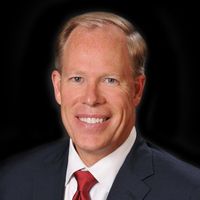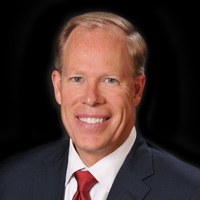Pass On The Pitch: 5 Questions to Ask When Hiring a Financial Professional
Evaluating which pro to guide your retirement plans takes more than passively listening to a sales pitch. Speak up.


Profit and prosper with the best of Kiplinger's advice on investing, taxes, retirement, personal finance and much more. Delivered daily. Enter your email in the box and click Sign Me Up.
You are now subscribed
Your newsletter sign-up was successful
Want to add more newsletters?

Delivered daily
Kiplinger Today
Profit and prosper with the best of Kiplinger's advice on investing, taxes, retirement, personal finance and much more delivered daily. Smart money moves start here.

Sent five days a week
Kiplinger A Step Ahead
Get practical help to make better financial decisions in your everyday life, from spending to savings on top deals.

Delivered daily
Kiplinger Closing Bell
Get today's biggest financial and investing headlines delivered to your inbox every day the U.S. stock market is open.

Sent twice a week
Kiplinger Adviser Intel
Financial pros across the country share best practices and fresh tactics to preserve and grow your wealth.

Delivered weekly
Kiplinger Tax Tips
Trim your federal and state tax bills with practical tax-planning and tax-cutting strategies.

Sent twice a week
Kiplinger Retirement Tips
Your twice-a-week guide to planning and enjoying a financially secure and richly rewarding retirement

Sent bimonthly.
Kiplinger Adviser Angle
Insights for advisers, wealth managers and other financial professionals.

Sent twice a week
Kiplinger Investing Weekly
Your twice-a-week roundup of promising stocks, funds, companies and industries you should consider, ones you should avoid, and why.

Sent weekly for six weeks
Kiplinger Invest for Retirement
Your step-by-step six-part series on how to invest for retirement, from devising a successful strategy to exactly which investments to choose.
Choosing a financial professional can be a daunting task.
Most advisers I know say they actually prefer it when prospective clients check out several candidates before making a decision. It’s the one of the best ways to find a good fit.
But you can’t make an apples-to-apples comparison if you just sit and listen to a bunch of pitches. Make it an interview. Ask a lot of questions. And ask the same questions every time.
From just $107.88 $24.99 for Kiplinger Personal Finance
Become a smarter, better informed investor. Subscribe from just $107.88 $24.99, plus get up to 4 Special Issues

Sign up for Kiplinger’s Free Newsletters
Profit and prosper with the best of expert advice on investing, taxes, retirement, personal finance and more - straight to your e-mail.
Profit and prosper with the best of expert advice - straight to your e-mail.
Then you can measure the pluses and minuses of each person and what they can do for you.
Obviously trust, integrity and transparency are important qualities you want to focus on. But how do you drill down to that level at a first meeting?
Here are a few questions to get you started.
1. Are you working in my best interests? Registered Investment Advisers are fiduciaries; they’re legally and ethically required to put their clients’ interests first. Brokers are held to a different standard, which requires that they make recommendations based only on the “suitability” of an investment. The products they sell don’t have to be the best or least expensive as long as they meet the client’s needs, which can open the door to conflicts of interest. If a candidate says he’s a fiduciary, get it in writing.
2. What kind of fees will I be looking at? Get this in writing, as well. You want to know about EVERYTHING: adviser fees, custodian fees, investment management fees and trading costs. Ask about disclosed and undisclosed fees. Examples of undisclosed, or hidden fees, would include trading costs and tax implications with mutual funds, spreads on bonds, and M&E costs on annuities. Only then can you compare one adviser and the products they intend to use to the next.
3. What processes do you have in place to help make sure your recommendations are in line with my risk tolerance? Risk exposure should be a big part of your conversation with every candidate. Too often, investors just turn over their money and let an adviser pick the portfolio mix. That’s like going to the doctor and getting a prescription without talking about symptoms or getting an exam. There are many tools available to assess your comfort level and capacity for risk.
4. How will I be rewarded for taking risk? This is all about gauging performance. Once you’ve talked about risk exposure and risk tolerance, you should ask about the end result — or what you’ll get back for taking that risk. You’re trusting this person with your money, so what’s in it for you? For comparison, I suggest using an industry standard, such as the Sharpe Ratio, to compare risk/return of one portfolio to another.
5. Are the investment returns your company reports audited? Who does the auditing? You want to hear that their returns are audited by Global Investment Performance Standards (GIPS), which has the most widely accepted auditing standards. The adviser you choose should have a consistent, audited track record.
Remember: Don’t fall for a sales pitch. The clearer and more prepared an adviser is with the answers to these questions, it can help you as you make decisions on your search for a financial adviser to build a relationship with. Investing is complicated — that’s why you need help. Make sure you find someone you can communicate with and someone you can trust.
Kim Franke-Folstad contributed to this article.
Profit and prosper with the best of Kiplinger's advice on investing, taxes, retirement, personal finance and much more. Delivered daily. Enter your email in the box and click Sign Me Up.

Chris Abts is president and founder of Cornerstone in Reno, Nevada. He holds a Series 65 securities registration and has earned the Certified Estate Planner (CEP) and Chartered Retirement Planning Counselor (CRPC) professional designations.
-
 Ask the Tax Editor: Federal Income Tax Deductions
Ask the Tax Editor: Federal Income Tax DeductionsAsk the Editor In this week's Ask the Editor Q&A, Joy Taylor answers questions on federal income tax deductions
-
 States With No-Fault Car Insurance Laws (and How No-Fault Car Insurance Works)
States With No-Fault Car Insurance Laws (and How No-Fault Car Insurance Works)A breakdown of the confusing rules around no-fault car insurance in every state where it exists.
-
 7 Frugal Habits to Keep Even When You're Rich
7 Frugal Habits to Keep Even When You're RichSome frugal habits are worth it, no matter what tax bracket you're in.
-
 For the 2% Club, the Guardrails Approach and the 4% Rule Do Not Work: Here's What Works Instead
For the 2% Club, the Guardrails Approach and the 4% Rule Do Not Work: Here's What Works InsteadFor retirees with a pension, traditional withdrawal rules could be too restrictive. You need a tailored income plan that is much more flexible and realistic.
-
 Retiring Next Year? Now Is the Time to Start Designing What Your Retirement Will Look Like
Retiring Next Year? Now Is the Time to Start Designing What Your Retirement Will Look LikeThis is when you should be shifting your focus from growing your portfolio to designing an income and tax strategy that aligns your resources with your purpose.
-
 I'm a Financial Planner: This Layered Approach for Your Retirement Money Can Help Lower Your Stress
I'm a Financial Planner: This Layered Approach for Your Retirement Money Can Help Lower Your StressTo be confident about retirement, consider building a safety net by dividing assets into distinct layers and establishing a regular review process. Here's how.
-
 The 4 Estate Planning Documents Every High-Net-Worth Family Needs (Not Just a Will)
The 4 Estate Planning Documents Every High-Net-Worth Family Needs (Not Just a Will)The key to successful estate planning for HNW families isn't just drafting these four documents, but ensuring they're current and immediately accessible.
-
 Love and Legacy: What Couples Rarely Talk About (But Should)
Love and Legacy: What Couples Rarely Talk About (But Should)Couples who talk openly about finances, including estate planning, are more likely to head into retirement joyfully. How can you get the conversation going?
-
 How to Get the Fair Value for Your Shares When You Are in the Minority Vote on a Sale of Substantially All Corporate Assets
How to Get the Fair Value for Your Shares When You Are in the Minority Vote on a Sale of Substantially All Corporate AssetsWhen a sale of substantially all corporate assets is approved by majority vote, shareholders on the losing side of the vote should understand their rights.
-
 How to Add a Pet Trust to Your Estate Plan: Don't Leave Your Best Friend to Chance
How to Add a Pet Trust to Your Estate Plan: Don't Leave Your Best Friend to ChanceAdding a pet trust to your estate plan can ensure your pets are properly looked after when you're no longer able to care for them. This is how to go about it.
-
 Want to Avoid Leaving Chaos in Your Wake? Don't Leave Behind an Outdated Estate Plan
Want to Avoid Leaving Chaos in Your Wake? Don't Leave Behind an Outdated Estate PlanAn outdated or incomplete estate plan could cause confusion for those handling your affairs at a difficult time. This guide highlights what to update and when.